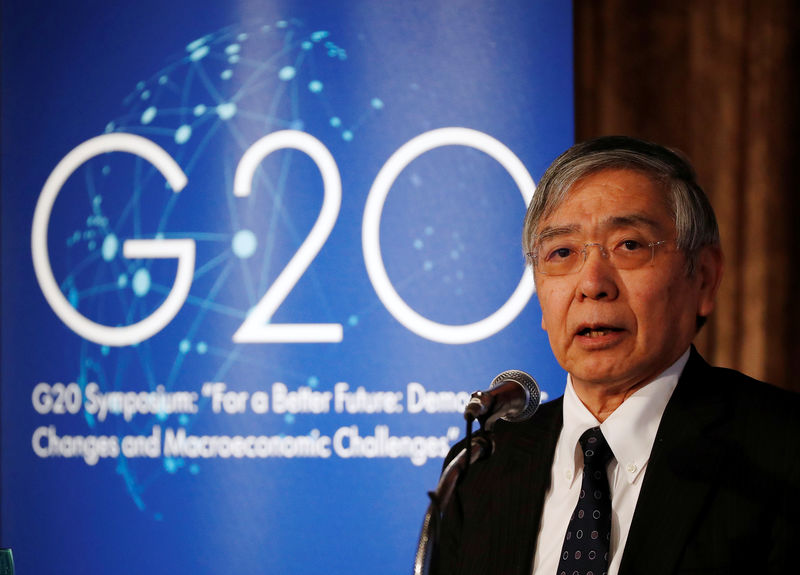By Leika Kihara
TOKYO (Reuters) - Bank of Japan Governor Haruhiko Kuroda said on Monday the central bank would debate and communicate at an appropriate timing an exit plan from its ultra-loose monetary policy.
Speaking at the upper house budget committee, Kuroda also underscored the need to watch out for the side effects of prolonged monetary stimulus such as the risks of causing instability in the financial system.
Kuroda said the BOJ did not have a specific exit strategy now because it would take "significant time" in achieving its 2 percent inflation target.
But he said an exit from ultra-easy policy would involve a hike in interest rates on excess reserves financial institutions park with the BOJ, and measures to shrink the central bank's balance sheet.
"To ensure markets remain stable, it's important to come up with a strategy and guidance at an appropriate timing on how to proceed with an exit," Kuroda said.
"When the appropriate time comes, we will debate at our policy meetings an exit strategy and guidance, and communicate them appropriately."
Kuroda also reiterated that the BOJ will "patiently" maintain its massive stimulus programme to ensure inflation accelerates towards its 2 percent target.
"The economy is sustaining momentum for achieving the BOJ's price target," he said.
Kuroda has justified nearly six years of monetary stimulus, saying it has helped Japan escape deflation, boost company profits and create almost full employment.
When pressed by an opposition lawmaker for comment on the side effects from monetary stimulus, Kuroda said powerful monetary easing could distort the government bond market and disrupt financial intermediation.
"There's a concern low-rate environment and competition will prolong downward pressure on financial institutions' profits. As a result I'm aware of risks that financial intermediation could stagnate and financial system could become unstable," he said.
"I don't think such risks are large at the moment given that financial institutions are equipped with ample capital base. But I need to pay enough attention to future developments."
Speaking at the same parliament session, Prime Minister Shinzo Abe said that he had confidence in Kuroda's ability to guide monetary policy.

"Without bold monetary easing, Japan would still have been in deflation even now," Abe said.